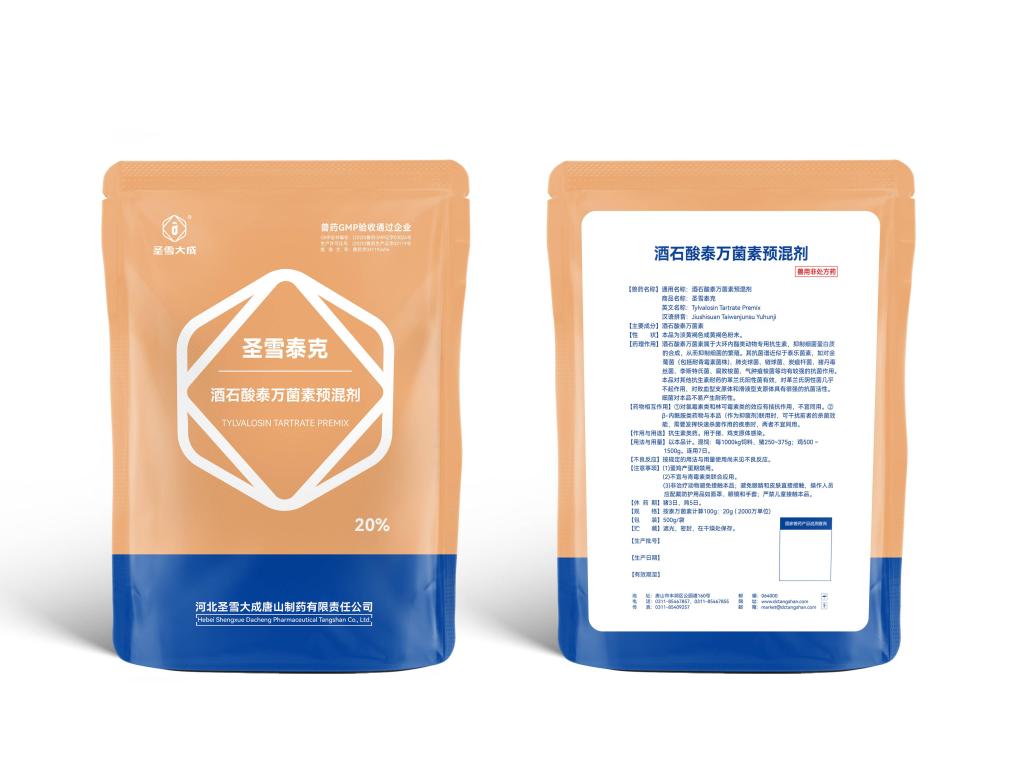Tel:+8618231198596

News
 CONTACT
CONTACT
 CONTACT
CONTACT
- Linkman:Linda Yao
- Tel: +8618231198596
- Email:linda.yao@dcpharma.cn
- Linkman:CHARLES.WANG
- Department:Overseas
- Tel: 0086 0311-85537378 0086 0311-85539701
News
Veterinary research explores the potential of tylvalosin tartrate premix in novel applications.
TIME:2024-08-22
Background
Tylvalosin tartrate is a semi-synthetic antibiotic belonging to the macrolide family. It is primarily used in veterinary medicine to control bacterial diseases in livestock, particularly in swine and poultry. The premix form facilitates easy administration through feed or water, making it a practical solution for large-scale operations.
Novel Applications
Recent veterinary research has identified several novel applications for tylvalosin tartrate premix, including:
Immune Modulation: Studies suggest that tylvalosin tartrate may have immunomodulatory effects, potentially enhancing the immune response in animals. This could help animals better resist infections and improve overall health status.
Gut Health: Researchers are exploring the impact of tylvalosin tartrate on gut microbiota. Preliminary findings indicate that the antibiotic might promote a healthier gut environment by selectively reducing harmful bacteria and supporting beneficial microbial populations.
Performance Enhancement: Beyond its direct antimicrobial properties, there is growing evidence that tylvalosin tartrate can improve feed efficiency and growth performance. This may be attributed to improved nutrient absorption and a reduction in inflammation caused by gut pathogens.
Disease Prevention Strategies: In addition to treating existing infections, tylvalosin tartrate is being investigated as a prophylactic measure to prevent the onset of certain diseases. This could be particularly useful in high-risk situations where disease outbreaks are common.
Sustainable Livestock Management: As part of broader efforts to reduce antibiotic usage and combat antibiotic resistance, researchers are looking at how tylvalosin tartrate can be integrated into sustainable livestock management practices. This includes developing protocols for targeted and judicious use.
Research Insights
Several key insights have emerged from ongoing research:
Immunomodulatory Effects: Studies show that tylvalosin tartrate can stimulate the immune system, potentially reducing the severity and duration of infections.
Gut Microbiota Balance: There is evidence that the antibiotic can positively influence the balance of gut microbiota, leading to improved gut health and function.
Performance Metrics: Research indicates that tylvalosin tartrate can improve growth rates and feed conversion ratios, translating into economic benefits for producers.
Future Directions
As veterinary research continues to advance, the potential applications of tylvalosin tartrate premix are expanding. Future studies will focus on:
Further Understanding Mechanisms: Deepening the understanding of the mechanisms behind the antibiotic's effects on the immune system and gut microbiota.
Optimizing Usage Protocols: Developing specific protocols for the use of tylvalosin tartrate in different livestock species and under various conditions.
Long-Term Sustainability: Ensuring that the antibiotic is used in a way that minimizes the risk of antibiotic resistance and supports long-term sustainability in agriculture.
Conclusion
Tylvalosin tartrate premix has proven to be a versatile tool in veterinary medicine, with traditional uses in the prevention and treatment of bacterial infections. Ongoing research is uncovering new applications that could further enhance the health and productivity of livestock. As the veterinary community continues to explore these novel uses, the potential benefits for animal welfare and agricultural sustainability become increasingly clear.
- Tel:+8618231198596
- Whatsapp:18231198596
- Chat With Skype







